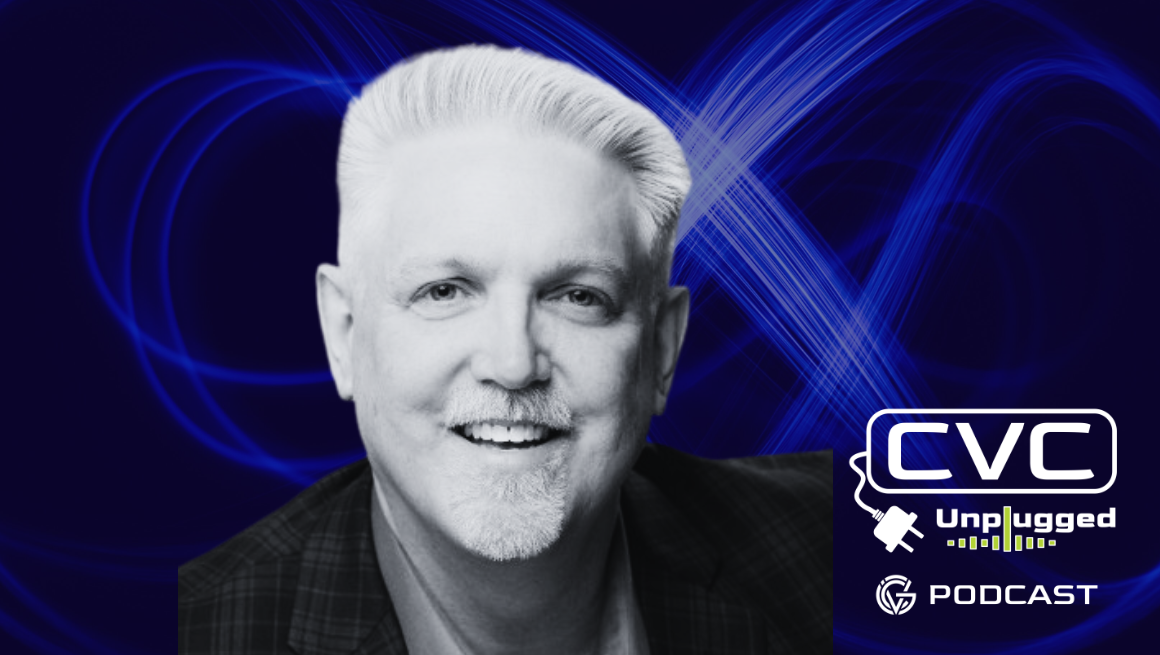Woven Capital managing partner George Kellerman joins the CVC Unplugged podcast to talk about how his $800m growth fund is now Toyota-wide.

Since its inception in 2021, Woven Capital has been the $800m growth fund for Woven by Toyota, the Japanese automaker’s next-generation mobility subsidiary. Last year, though, its mandate was broadened to being the growth fund for Toyota as a whole.
“Now that we’re representing all of Toyota, we’re investing in everything, not just autonomous vehicles and software-defined vehicles, but hydrogen fuel cells, battery technologies, anything related to the future of mobility. It’s really an exciting time for us,” says George Kellerman, managing partner of Woven Capital, on the CVC Unplugged podcast.
The main change, other than a lot more air travel to meet potential investees, is the areas of focus themselves, aligning with the wider goal of taking Toyota from being an automobile manufacturer to a mobility company.
“You’re talking about transformational and generational change,” says Kellerman. “It really requires change at every level of the company, and it requires a lot of innovation.”
It is not just the vehicle itself that matters, but the entire ecosystem around it. A car doesn’t exist in a vacuum, it relies on infrastructure that has gone far beyond just roads. Connectivity, charging networks, even the power generation and transmission infrastructure that power them, and of course, the end-user.
“That’s really what drives where we invest. It’s the market, and understanding where the market’s going,” says Kellerman.
Lacklustre sales in the EV industry highlight the importance of investing in a vehicle’s ecosystem – a lack of widespread charging has made people reluctant to buying them, especially away from major population centres. If you don’t think holistically, you could be holding back your main product.
A holistic view of mobility
“When we think of mobility, we think of mobility in the broadest sense. It’s the movement of people, goods, and information,” says Kellerman.
One investment that is perhaps the most emblematic of Woven Capital’s wide view of mobility is Intuition Robotics, an Israeli startup focused on technology to make the elderly more autonomous.
Its system is intuitive, proactively asking after the needs of the elderly customer. Would they like to order something to eat? Are they feeling well or have to go see a doctor? It is, thereby, creating mobility for people, goods and information.
Its technology will also be used at Woven City, the city of the future that Toyota is developing near Mt. Fuji in Japan – one of the perks Woven Capital can offer to its portfolio companies, the opportunity to trial their technologies in a live environment, complete with real residents and businesses.
“[Woven City] is a great example of where you can actually test some of these technologies and see how they impact people’s daily lives.”
Double CVC
Toyota is one of the few corporates that have two CVC funds, Woven Capital and its early-stage sister fund, Toyota Ventures. Intuition Robotics further highlights the relationship between the two, with Woven having taken over as lead investor from Toyota Ventures.
While Toyota Ventures is an exploratory fund looking at Horizon 3 opportunities at seed-to-series A stage, Woven begins at series B and beyond. It is a strategic fund that needs an internal sponsor for investments, preferring to get commercial arrangements in place with portfolio companies, though it doesn’t require them.
Investing at the growth stage requires a different approach than the early stage. The startups are further along, more mature, and have a shorter wait before exits – you’re not having to hope that a couple of winners in your portfolio will make up for the number that are more likely to fail. Portfolios are largely de-risked, which also means the return profiles are lower – instead of 10x or 20x, you’re maybe looking at 2x or 3x.
At growth stage, it’s not uncommon to see “one-and-dones”, according to Kellerman, as the valuations are already very high and the pro-ratas for following rounds may be too high.
“We’re not just investing in things that we think might be important or relevant to the future. We need to invest in things that are immediately relevant and important to the business. So the only way to do that is to really be an extended or embedded part of those business teams, and we’re building out our team on a global basis, to meet those needs,” says Kellerman, describing the growing importance of his unit’s portfolio success team, which is the fastest growing part of his team.
There is, of course, overlap there – some series A rounds are too big for Toyota Ventures while some series B rounds are too small for Woven. Together, they can tackle all three horizons simultaneously.
“This creates a superpower for Toyota,” says Kellerman.
“We meet regularly with them. We share information. We come across a lot of startups that are too early for us, and we’ll share those companies with them and vice versa. They sometimes meet companies that are too late for them and they’ll pass them on to us.”

Fernando Moncada Rivera
Fernando Moncada Rivera is a reporter at Global Corporate Venturing and also host of the CVC Unplugged podcast.








